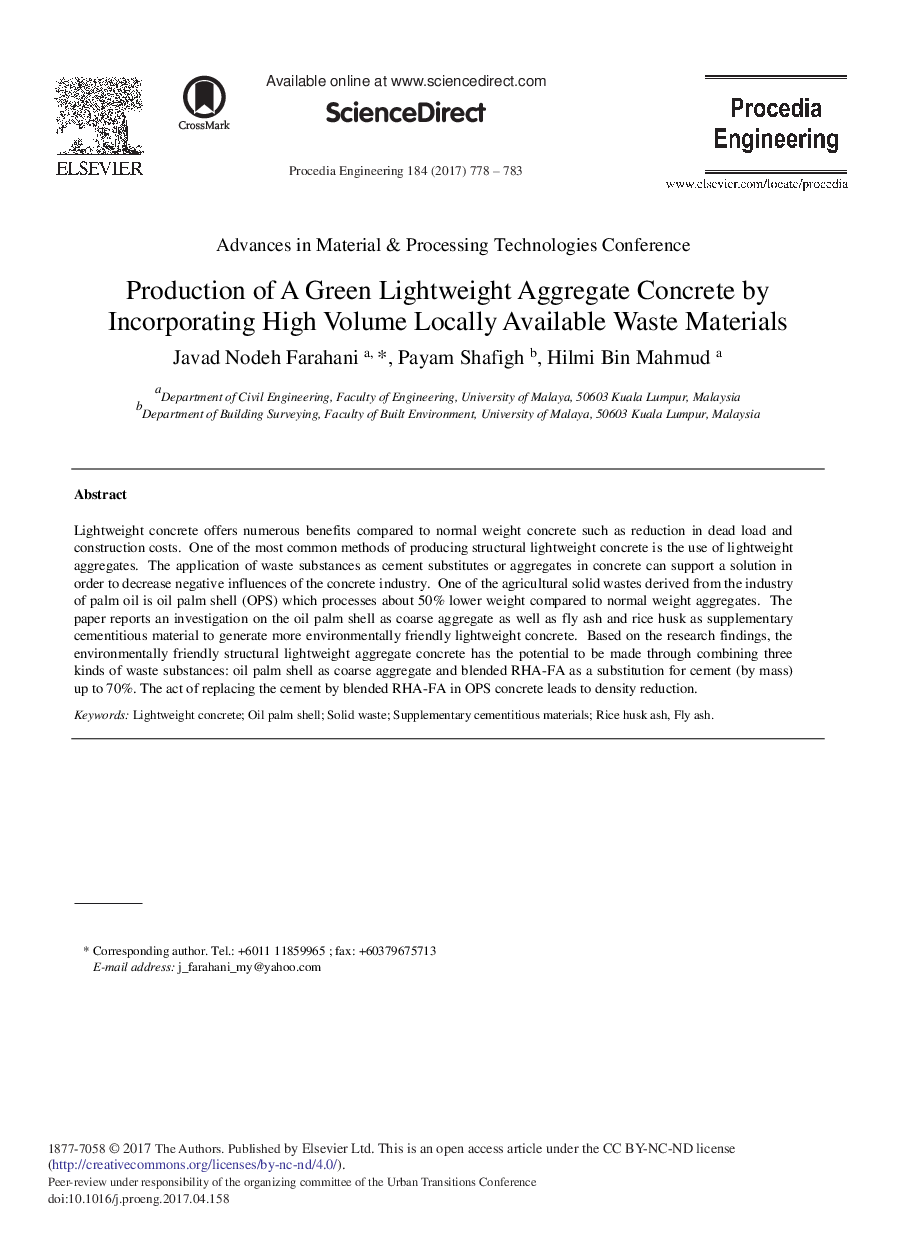| Article ID | Journal | Published Year | Pages | File Type |
|---|---|---|---|---|
| 5029195 | Procedia Engineering | 2017 | 6 Pages |
Abstract
Lightweight concrete offers numerous benefits compared to normal weight concrete such as reduction in dead load and construction costs. One of the most common methods of producing structural lightweight concrete is the use of lightweight aggregates. The application of waste substances as cement substitutes or aggregates in concrete can support a solution in order to decrease negative influences of the concrete industry. One of the agricultural solid wastes derived from the industry of palm oil is oil palm shell (OPS) which processes about 50% lower weight compared to normal weight aggregates. The paper reports an investigation on the oil palm shell as coarse aggregate as well as fly ash and rice husk as supplementary cementitious material to generate more environmentally friendly lightweight concrete. Based on the research findings, the environmentally friendly structural lightweight aggregate concrete has the potential to be made through combining three kinds of waste substances: oil palm shell as coarse aggregate and blended RHA-FA as a substitution for cement (by mass) up to 70%. The act of replacing the cement by blended RHA-FA in OPS concrete leads to density reduction.
Keywords
Related Topics
Physical Sciences and Engineering
Engineering
Engineering (General)
Authors
Javad Nodeh Farahani, Payam Shafigh, Hilmi Bin Mahmud,
